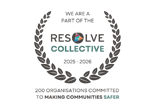In this section you will find information on:
Access Wellbeing
The Access Wellbeing hubs across Dorset provide a welcoming space for members of the local community to find support on the issues affecting them.
Hubs are staffed by skilled wellbeing coordinators, supported by a team of experienced managers and administrative staff.
The wellbeing coordinators are trained to provide help and advice across a wide range of areas. They have the time to listen, then can help people to access support on topics including:
- Mental health and emotional wellbeing
- Social connections and activities
- Grief and loss/bereavement
- Work, money, housing, benefits support
- Support for carers and family members
- Volunteering
The hub teams will help people to access support from across the local system, whether that’s through a charity or community group, the NHS, the local authority, or another provider.
Visitors can find out more about their closest hub and services on the dedicated Access Wellbeing website.

Community Front Rooms
The Community Front Rooms (CFRs) provide a safe and welcoming environment where adult visitors (over the age of 18) can self-refer to access support for their mental health on their own terms, and to define their crisis.
Visitors are able to talk with non-clinical practitioners, and peers with lived experience, to work in partnership to self-manage and create safety plans, based on recovery focused approaches. Visitors do not need to have a defined mental health diagnosis and the team can offer support to visitors in distress without clinically defining symptoms, diagnosis or treatment plans.
The CFRs is an equal partnership between Dorset HealthCare University NHS Foundation Trust, BCHA based in Wareham and Weymouth, and third sector services Hope charity based in Shaftesbury and Burrough Harmony based in Bridport. Together we cover the whole of Dorset.
Visitors can simply drop in or utilise the Attend Anywhere virtual drop in service. Further information can be found on the Dorset HealthCare website.
The operating hours: Thursday to Sunday: 14:15 - 21:45
We advise to access by 21:00 to make the most of the service.
Community Front Rooms contacts
Bridport
Call: 01308 459713
Visit: The Assembly Rooms, Gundry Lane, Bridport, DT6 3RL
Email: [email protected]
Shaftesbury
Call: 01747 851397
Visit: Hope Offices, Longmead Ind Est, Shaftesbury, SP7 8PL
Email: [email protected]
Wareham
Call: 07971614931
Visit: Unit 1, Leanne Business Centre, Wareham, BH20 4DY
Email: [email protected]

The University Retreat
The University Retreat is a safe, confidential, drop-in service for students over the age of 18 from Arts University Bournemouth, AECC University or Bournemouth University who are experiencing a mental health crisis.
The operating hours: Monday to Saturday: 14:00 - 21:00
You do not need to book an appointment or be referred. We encourage you to visit the Unversity Retreat if you are:
- Feeling overwhelmed
- Finding it hard to manage your mental and emotional wellbeing
- You need a safe, non-judgemental space to feel calm
- In urgent need of mental health support
- Having thoughts to end your life
- Confused about where to find support for your current experience/s
Examples of support include:
- At the University Retreat, we do not offer clinical therapy. We provide non-judgemental, confidential, in-the-moment support when you are struggling to cope
- Our team of mental health professionals and volunteers can provide guidance and advice that includes helping you get further support if needed
- We offer the opportunity to reflect and build on your current support network, coping strategies, strengths and skills
- If you don’t feel like talking you may want to make use of the arts, crafts, books and other resources we have or simply take some time out, with a cup of tea, before continuing with your day
The University Retreat is unable to offer support if:
- You require medical attention beyond basic first aid/wound care
- You are heavily intoxicated by alcohol or substances
- You are displaying threatening or physically aggressive behaviour
University Retreat
Call: 07966800100
Visit: The University Retreat, Tolpuddle Annex 02, Talbot Campus, Fern Barrow, Poole, BH12 5BB
Email: [email protected]

Here is Joshua Hevicon, Senior Practitioner of the University Retreat, sharing the powerful impact of this service for the Suicide Prevention Summit 2023.
Recovery Houses
BCHA’s Recovery Houses are part of the Mental Health Acute Care Pathway commissioned by Dorset Healthcare, following public consultation. They are closely linked with the Community Front Rooms and Retreats and offer an innovative approach to mental health support.
We have one house in Poole, which accommodates four guests and one house in Weymouth, which accommodates three guests, both for a maximum of two weeks.
The service is for adults only and is designed to:
- Reduce crisis presentations to emergency departments
- Reduce number of people in crisis being taken to emergency departments by ambulance
- Reduce use of Section 136 (police power under Mental Health Act (MHA))
- Reduce number of unplanned MHA assessments
- Reduce the MHA gravity generally and specifically for the local authority out of hours’ service
The houses are designed to support people who are heading towards crisis but do not warrant hospital treatment, yet do need additional support, as well as for individuals stepping down from hospital treatment.
The level of support depends on the level of need, varying from support with diet, finances, relationships and employment, as well as basic life skills. Other guests simply need some time out from their current surroundings. The support they receive is based on the following principles:
- Person centred
- Strength focused
- Recovery orientated
- Building resilience
- Supportive of risk taking and risk sharing
Examples of support include:
- Relationship support by helping people re-establish network of friends
- Provide advice and support on avoiding or minimising risk behaviour
- Provide emotional support and advice
- Assisting guest to access other services
The service can only be accessed via a direct referral from the Home Treatment Teams and this requires an individual to reach their threshold for entry.
Mental Health Floating Support Service
The Mental Health Floating Support Service delivers personalised, housing related support to people over 18 with a diagnosed mental health problem, and who are experiencing difficulty sustaining their tenancy or their own home in the Bournemouth area.
Our support is effective in reducing the impact on other services, such as: the Police, Community Mental Health Teams and the need for more intensive housing and readmissions to hospitals.
Our goal is to reduce and prevent those at risk of homelessness among a section of our community who are stigmatised and often isolated and misjudged. Our customers can struggle to be heard and feel insignificant. Often they are living in unsuitable, unsafe accommodation or may be at risk of losing their accommodation due to difficulties managing their mental health.
We strive to reduce their social isolation and help them find their place in their community to live a safe and more meaningful life.
Customers must be:
- 18+ with their own tenancy (council/housing association (including BCHA/private) or be a homeowner in Bournemouth
- Have a formal mental health diagnosis
- Experiencing difficulty managing their accommodation and may be at risk of losing their home
Anyone can make a referral (including self-referrals). To make a referral, please fill out our online form here. A member of the team will then be in touch with you regarding the next steps.
Poole Mental Health Services
Our Poole Mental Health Services cover Millennium House, Amica House and Cornelia Lodge. They provide high and transitional supported mental health accommodation for adults from 18 to 65 years of age, with a mental health diagnosis and who are at risk of facing homelessness.
Staff support and enable residents to live independently, maintain a tenancy and manage their mental health needs. Individuals learn to manage mental health crisis points, as well as life skills such as cooking, budgeting and meaningful use of their time.
Criteria for support:
- Mental health diagnosis
- Under or in the middle of an assessment by the Community Mental Health Team
- Be over 18 and under 65
- Must not be on opiates or other Class A drugs
- No alcohol misuse
We do not accept emergency referrals. We only accept referrals through BCP Council.
Our support team works to enable and encourage residents to develop their own support plans in-line with person centred care practices. Residents are encouraged to participate in both group workshops and individually tailored key working sessions.
Long-term, our approach is for Millennium House residents to work towards developing skills for independent living. Living skills are developed using simple budget planning, meal preparation (including food hygiene practices) and organising shopping trips, cleaning and maintaining a healthy living space, and working towards maintaining a successful tenancy when living independently.
Staff work alongside supporting agencies and partners to ensure a clear line of communication and that the right support is being accessed, to enable each resident to make progress. We use a holistic, person centred and psychologically informed approach when working with residents, to help them achieve and maintain long-term positive mental health awareness.
Poole Mental Health Contacts
Referral details can be found can be found on the BCP Council website.
Call: 01202 451265
Email: [email protected]
Copies of the Millennium House or Amica House residents' guides are available on request.
Call: 01202 764300
Email: [email protected]

Pepperell House
Pepperell House is a mental health step down service for those who are medically fit for discharge but need a little extra support before fully integrating into the community.
Located in the heart of Shaftesbury, Pepperell House accommodates up to eight guests, for a maximum of 12 weeks.
Pepperell House can only be accessed by referral by Dorset Healthcare's new Flow Team, who work alongside CMHT and Hospital to Home Team.
Here, we do not offer clinical therapy but provide non-judgemental, confidential, in-the-moment support for people struggling to cope with their mental health. During a stay at Pepperell House, our team of mental health professionals will provide guidance and advice that includes using community resources and signposting. Customers will also have the opportunity to reflect and build on their current support network, coping strategies, strengths and skills.
The support customers receive is based on the following principles:
- Person centred
- Strengths focused
- Recovery orientated
- Building resilience
- Risk taking and risk sharing. Staff will offer advice and support on avoiding or minimising risk behaviours
Examples of support include:
- Building and repairing relationships
- Emotional support
- Supporting customers to access other services
- Improving life skills e.g. cooking, cleaning, finances, healthy living and managing medication
Contact us
Email: [email protected]










